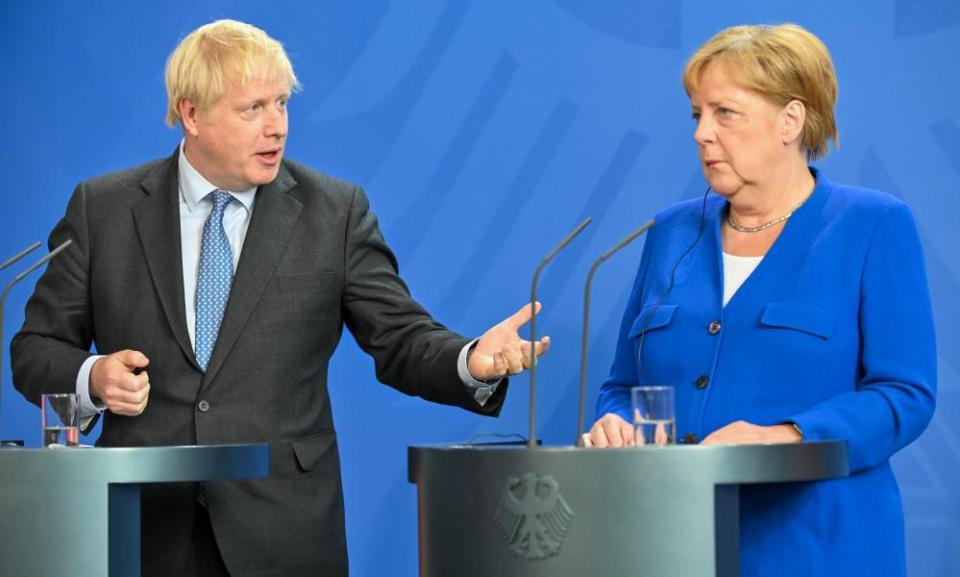We must not switch off from the grim truth about Brexit

I have a message for the many people I encounter who have given up reading anything about Brexit: I feel your pain! I sympathise with those who say: “I am fed up; why don’t they just get on with it?” Unfortunately, they could not be more mistaken.
“Getting on with it” would be – well, allow me to quote a recent leading article in my journalistic alma mater, the normally restrained Financial Times. A fortnight ago, the FT warned: “The UK is careering towards the precipice, with dire implications for its economy, security, and the union of nations it comprises. It is now parliament’s duty to prevent the British government from visiting a calamity on its own country on October 31.”
This was not one of two or three leading articles, as is normal practice. It was what we used to call a “Death of Queen leader” – so important that the entire column was devoted to it. We at the Observer have also used this device recently. With any luck time may allow us to rename such articles as “Death of Brexit” leaders.
The FT leader appeared a few days before chapter and verse on no deal were provided by our rival paper the Sunday Times. It was a public service for that paper to allow the journalist’s desire for a “scoop” to triumph over its pro-Brexit views. For the benefit of those who have switched off, the scoop consisted of a detailed leak of the government’s own assessment of the damage in store: chaos in the ports; severe disruption to food, fuel, chemical and medical supplies; civil unrest, not least on the Northern Irish border; sharp price increases; job losses; and much more.
I wonder whether Merkel was reflecting that there might be a need for another Berlin airlift – but this time from Berlin to London?
And this is only the short-term damage. In the longer term, no deal would be an exercise in severely harming the economic and industrial base – making the country poorer to satisfy the ideologues who have captured the Tory party, and further hurting those who voted Leave in protest at the economic or social ills they had already suffered.
Despite the protestations of the time-servers in the most unimpressive cabinet in living memory, this is not a worst-case scenario but a central forecast. They told us it was “out of date”. It turned out to have been finalised this very month!
I nearly fell off my chair when I heard the former Brexit secretary David Davis try to dismiss the study by saying it was compiled by Remainer civil servants “who have the best interests of the country at heart”. Wait a minute: we are told by our prime minister that we Remainers are “collaborators” with Brussels, in what sounds like a deliberate historical echo recalling collaboration with Hitler. Johnson’s manifest intention is to blame the rest of the EU if he does not get his way – and its “collaborators”. But never mind about all the “project fear” stuff, he says: all we need is to look on the bright side.
My own way of trying to switch off is to re-read favourite comic novels. But the other day I had more or less switched off from Brexit at the theatre during a performance of the acclaimed banking drama The Lehman Trilogy. But only up to a point: there came a moment when we reached the Wall Street crash of 1929, and a leading member of the Lehman family said that optimism would see them through. Some hope! But I was immediately thinking of Johnson’s absurd bluster: “Come on, chaps. Cheer up. It will be great fun going over the cliff.”
One of the high spots of last week was the sidelong look Angela Merkel gave Johnson during one of his blustering moments. I wonder whether she was reflecting that, the way Brexit was going, there might need to be another Berlin airlift – but this time from Berlin to London?
Now there is one aspect of the damage being wreaked by the Brexiters that holidaymakers are noting to their cost, and that is the collapse of the pound. Our currency has fallen far more than might be justified by considerations of international competitiveness. My long memory goes back to the time in January 1985 when the pound threatened to sink below one dollar and the Thatcher government, for all its belief in “market forces”, threw everything into – successfully – propping it up. The pound is not that low yet against the dollar, but it is perilously close to one euro.
If this suicidal farce of Brexit is not stopped, one could not rule out such a collapse of confidence in this country that the government might find itself in a 1976 situation and seeking the support of the International Monetary Fund!
My colleagues are examining all the possible parliamentary shenanigans. But I make no apology for repeating my view that in the end we will need another referendum. If this were to go the wrong way again – which I doubt – then so be it. My Irish passport has arrived.

 Yahoo Finance
Yahoo Finance 